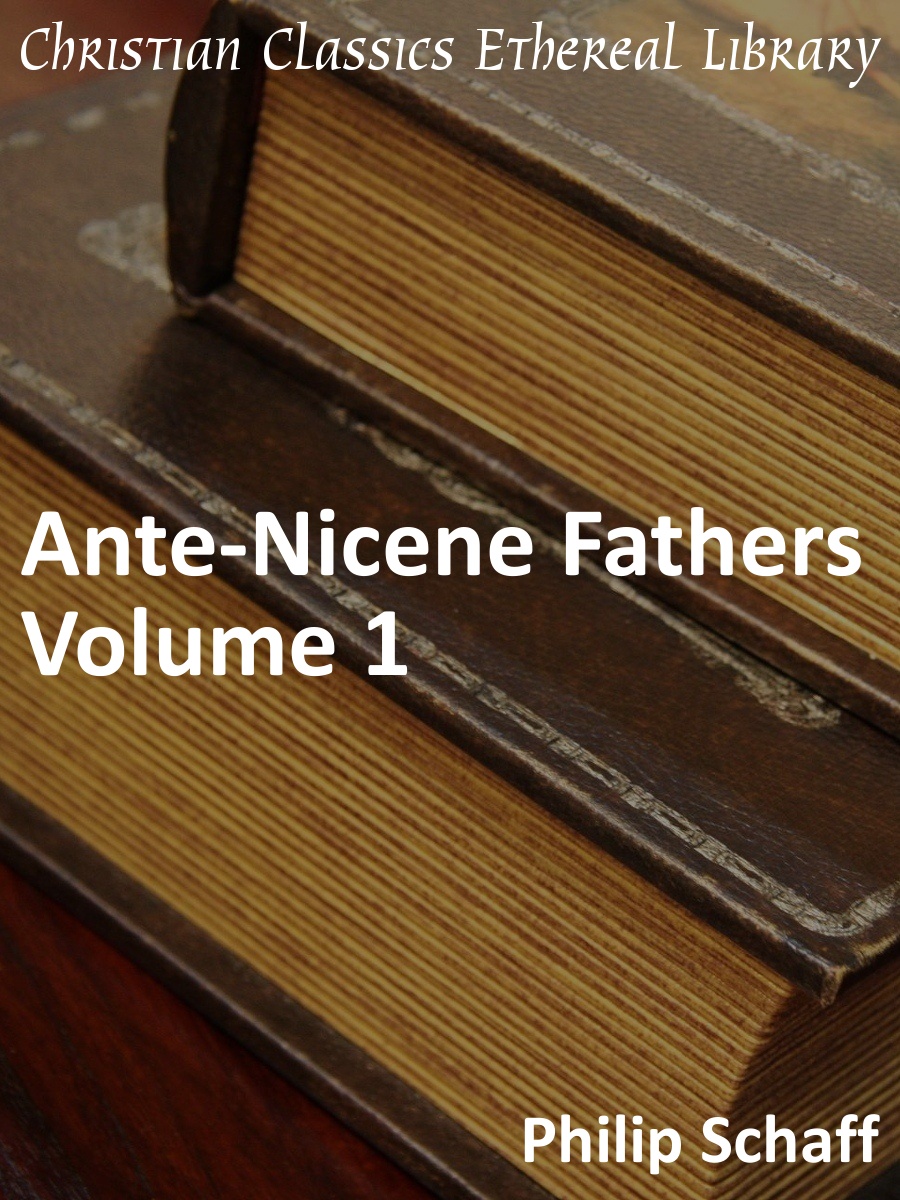Show only:
Classics only
Sort by:
CCEL Search results
Works of Jonathan Edwards, Volume Two by Edwards, Jonathan (1703-1758)
HEAVEN. Death of a saint. When a saint dies, he has no cause at all to grieve because he leaves his friends and relations whom he dearly loves; for he doth not properly leave them, he enjoys them still in Christ, because every thing that they love in them, and love them for, is in Christ in an infinite degree, whether it be nearness of relation, or any perfection and good received,…
ANF01. The Apostolic Fathers with Justin Martyr and Irenaeus by Schaff, Philip (1819-1893)
ANF05. Fathers of the Third Century: Hippolytus, Cyprian, Caius, Novatian, Appendix by Schaff, Philip (1819-1893)
. [This is numbered xii. in Oxford trans., and is assigned to a.d. 256.] On Jealousy and Envy. Argument. The deacon Pontius thus briefly suggests the purpose of this treatise in his Life of Cyprian:…
Commentary on the Whole Bible Volume V (Matthew to John) by Henry, Matthew (1662-1714)
L U K E. CHAP. XXIII. This chapter carries on and concludes the history of Christ's sufferings and death. We have here, I. His arraignment before Pilate the Roman governor, ver.
Life and Times of Jesus the Messiah by Edersheim, Alfred (1825-1889)
It were an extremely narrow, and, indeed, false view, to regard the difference between Judaism and Christianity as confined to the question of the fulfillment of certain prophecies in Jesus of Nazareth.
NPNF1-10. St. Chrysostom: Homilies on the Gospel of Saint Matthew by Schaff, Philip (1819-1893)
Homily XV. Matt. V. 1, 2. “And Jesus seeing the multitudes went up into the mountain, and when He was set, His disciples came unto Him. And He opened His mouth, and taught them saying, Blessed,” etc.
Commentary on the Whole Bible Volume VI (Acts to Revelation) by Henry, Matthew (1662-1714)
J U D E. CHAP. I. We have here, I. An account of the penman of this epistle, a character of the church, the blessings and privileges of that happy society, ver. 1, 2.
NPNF2-09. Hilary of Poitiers, John of Damascus by Schaff, Philip (1819-1893)
Book X. 1. It is manifest that there is nothing which men have ever said which is not liable to opposition. Where the will dissents the mind also dissents: under the bias of opposing judgment it joins battle, and denies the assertions to which it objects.
Selected Sermons of George Whitefield by Whitefield, George (1714-1770)
The Method of Grace Jeremiah 6:14 — “They have healed also the hurt of the daughter of my people slightly, saying, Peace, peace, when there is no peace. As God can send a nation or people no greater blessing than to give them faithful, sincere, and upright ministers, so the greatest curse that God can possibly send upon a people in this world, is to give them over to blind, unregenerate,…
NPNF2-06. Jerome: The Principal Works of St. Jerome by Schaff, Philip (1819-1893)
The figures in parentheses, when not otherwise indicated, refer to the pages in this volume. For a full account of the Life, the translator must refer to an article (Hieronymus) written by him in Smith and Wace’s Dictionary of Christian Biography.
Commentary on the Whole Bible Volume III (Job to Song of Solomon) by Henry, Matthew (1662-1714)
P S A L M S PSALM XXII. The Spirit of Christ, which was in the prophets, testifies in this psalm, as clearly and fully as any where in all the Old Testament, "the sufferings of Christ and the glory that should follow" (1 Pet.
